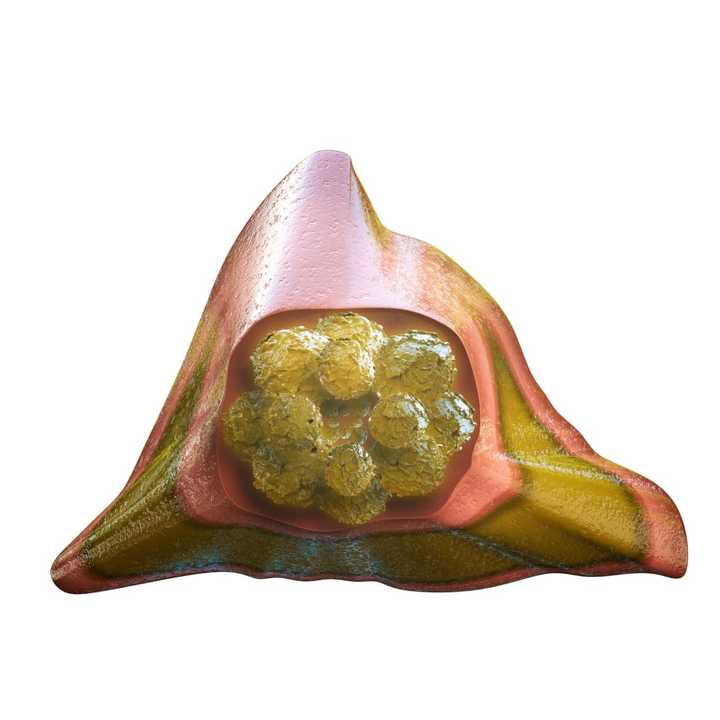Bone marrow is the spongy tissue inside bones such as the hip and thigh bones. It contains immature cells called stem cells which can mature into red blood cells, white blood cells and blood-clotting platelets. With a transplant, a patient receives new stem cells from a healthy donor to replace their own diseased bone marrow.
Here's how it works:
- The patient's faulty bone marrow is destroyed with high doses of chemotherapy or radiation.
- The donated stem cells are given to the patient intravenously and find their way to the insides of the bones.
- Over several weeks and months, the transplanted stem cells slowly rebuild the patient's immune and blood-forming systems.
Donated stem cells may come from a donor who matches a patient’s certain immunological factors. First-degree relatives make the best matches, particularly siblings and parents. However, researchers have made advances in the use of "partially matched" transplants to expand the possibility of bone marrow transplantation to more people. Umbilical cord blood can also provide another source of stem cells, especially for patients lacking a matched donor.
Some patients can benefit from a process known as "autologous (self) stem cell transplantation." During the procedure, a patient's own stem cells are removed from the blood and saved. The patient then receives high doses of chemotherapy, and after that treatment is complete, receives the stored stem cells so the body can rebuild its blood-forming and immune systems.
Bone marrow and stem cell transplantation is a complex procedure and carries risks, and is offered only at academic medical centers with special accreditation, bone marrow transplant units, blood cancer experts and transplantation immunologists—such as NewYork-Presbyterian. There, scientists are also developing new approaches to lower the risk of treatment-related complications and reduce the chance of cancer recurrence after transplantation.
NewYork-Presbyterian Cancer Centers provide high-quality, comprehensive cancer care at convenient locations throughout the New York metropolitan area, Westchester and the Lower Hudson Valley. NYP Cancer Centers provide a comprehensive program of cancer services in a state-of-the-art, comfortable environment. Board certified medical oncologists collaborate with a multidisciplinary team of cancer specialists to provide each patient with an individualized plan of care. To find a location, nyp.org/cancerlocations.
NewYork-Presbyterian is one of the largest and most comprehensive hospitals in the nation, ranked New York’s No. 1 hospital for the 16th consecutive year, and No. 6 in the United States, according to U.S. News & World Report. Affiliated with two academic medical colleges – Columbia University College of Physicians and Surgeons and Weill Cornell Medicine, NewYork-Presbyterian brings together internationally recognized researchers and clinicians to develop and implement the latest approaches for prevention, diagnosis and treatment. The Herbert Irving Comprehensive Cancer Center at NewYork-Presbyterian/Columbia University Medical Center is one of only three NCI-designated comprehensive cancer centers in New York State. NewYork-Presbyterian provides comprehensive cancer care at all of our locations across the New York Metro area, including Westchester County and the Hudson Valley. Learn more at nyp.org/cancer.



